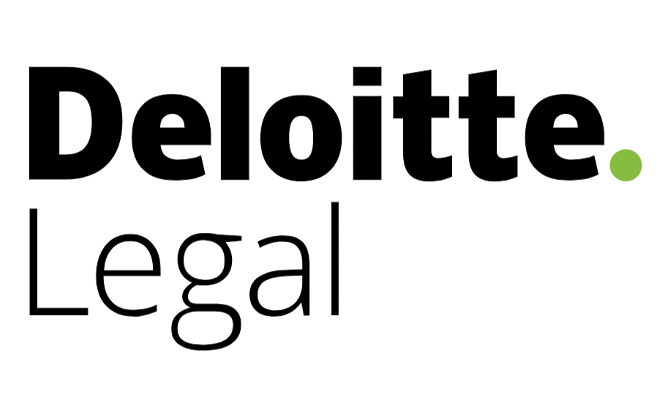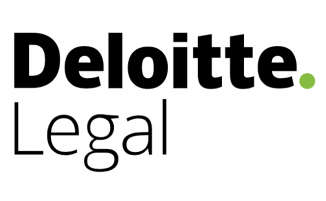Argentina
Like Anne Brontë said ‘… but he that dares not grasp the thorn should never crave the rose… ’. Argentina happens to be an attractive alternative to develop business in South America despite it showing some uncertainty when it comes to its economic situation. Taxes and its tax policy are not an exception and companies as well as individuals might find themselves involved in tax controversy processes. Since 2017 taxpayers faced a tax growing situation without precedents. The most important tax changes at a federal level since then that can be mentioned are:
- In 2017 Argentina faced one of the major’s tax reforms in the last 40 years through Law 27.430 (which amended several tax laws and the federal tax procedure law).
- In 2019 the A.K.A Impuesto PAIS (‘Tax for an Inclusive and Solidarity Argentina’) aimed to tax any exchange transaction to acquire foreign currency (ie USD, euros, etc.).
- In 2020 due to the Covid-19 pandemic situation an emergency tax called ‘solidarity and extraordinary contribution to help moderate the effects of the pandemic’ was enacted by Law 27.605 taxing high-net-worth individuals.
- In 2020 and 2022, through different Federal Tax Authority’s resolutions, different income tax or personal assets tax withholdings were added to the Impuesto PAIS taxable event aiming to secure their collection in due time and to reduce the amount of imports of certain goods.
- In 2022, considering a context in which some industries benefited from the health crisis and the Ukraine-Russia war, the Federal Tax Authority issued Resolution 5248 that foresaw an income tax ‘one time’ extraordinary payment in advance on entities that in their income tax return for periods 2021 or 2022, as applicable, declared a tax of AR$100,000,000 or higher or that the tax result without considering any carry forward losses was of AR$300,000,000 or higher.
- In 2023, the Federal Tax Authority issued Resolution 5339 though which partially suspended the non-withholding certificates timely grant to taxpayers with tax credits accrued either for income tax or value added tax; the suspension is in force until 31 December 2023 and applies on imports of goods; any tax credit accrued due to this suspension can only by computed in the value added tax return of nine months after the month in which the withholding applied or the income tax return for the applicable fiscal year, respectively.
- Also, during this year, any fee for transactions done through an electronic platform (related to either new items or used items) are reached by a value added tax withholding regime.
- Lately, during June 2023, AFIP issued Resolution 5391/2023 through which established a new income tax payment in advance to contribute to the progressive redistribution of income and reduce negative impacts on the most vulnerable sectors of the population.
These type of unexpected changes on the tax treatment applicable to taxpayers, to industries or activities are the ones that trigger the need for litigation from a taxpayer perspective. Regarding the chances of getting a favourable ruling, it is important to mention that courts on administrative and tax matters, the tax court and the Federal Supreme Court of Justice these past few years issued some decisive rulings and, fortunately, it is possible to say that, despite the challenge that means to do business in Argentina and the time it takes to get a final judgment, the tax controversy system still is a solution for taxpayers seeking for legal relief.
Colombia
The Colombian tax system is highly volatile. Proof of this is that since 2012, Congress has approved six laws that substantially modify the Colombian tax code, with the latest being Law 2277 of 2022. Additionally, there are Regulatory Decrees, Resolutions, and Circulars that govern it, along with thousands of tax rulings issued by the DIAN (Colombian tax authority) that interpret the tax code.
Perhaps what is most vexing is not the abundance of regulations, but rather that the law obliges officials of the DIAN to interpret the norms of the tax statute – along with its regulations – according to the tax rulings issued by the legal department of the DIAN. This often leads to absurd situations where an official must resolve a specific case by applying an opinion that is clearly illegal, just to avoid disciplinary consequences.
Colombia, a tax conundrum of formal obligations
According to the World Bank’s Doing Business report1, Colombia ranks 148th in the category of paying taxes. According to the same measurement, on average, a taxpayer spends 256 hours per year to fulfill their tax obligations, while the average for OECD member countries is 158 hours. Precisely because the favourite sport of the DIAN is to ensure that taxpayers comply on time and to the letter with all formal duties, many controversies often revolve around mere formalities without ever verifying whether the taxpayer’s non-compliance caused harm or if substance should prevail over form, as is the case in the following examples:
Article 123 of the tax code requires, for the deduction of income tax expenses related to contracts for the importation of technology (such as technical assistance and technical services), patents, and trademarks, that the contract be registered with the relevant official agency within six months after the contract’s signing or within three months following any modification. In line with this, there are many controversies related to late registration of contracts or instances where the DIAN demands unnecessary registration. In any case, it makes no sense for the deductibility of a legitimate expense to depend solely on its registration on a web portal, and what is even more concerning is that, in addition to disallowing the expense, the tax authorities impose to the taxpayer penalties for inaccuracies.
Article 651 of the tax code establishes a penalty imposed when taxpayers fail to provide, provide with errors, or submit late information required by the DIAN. In practice, this penalty is often imposed for any kind of non-compliance. Fortunately, the Council of State, by ruling of 9 March 2023, case number 26924, clarified that not every non-compliance triggers the imposition of penalties and specified that the DIAN must prove that the error or delay in providing the information prevented the tax administration’s audit process. For this purpose, the official seeking to impose the penalty must explain to what extent the audit task was impeded.
While we acknowledge that in Colombia, the rulings of the Council of State are becoming more protective of taxpayer rights, and there are tax audits that can be quite technical – such as transfer pricing matters – we believe that the path towards more formal audits still has a long way to go.
Mexico
Currently in Mexico the federal tax authorities have taken aggressive positions and actions to audit taxpayers and collect taxes.
The audits they practice have focused more on evidential issues than on differences with taxpayers regarding the interpretation of tax laws. The amount of information currently required from taxpayers is considerable and in most cases authorities require 100% documentary support of the operations carried out by taxpayers, which makes audits complex.
The tax authorities currently schedule audits using mostly the digital tax receipts that taxpayers register in the authorities system, therefore, through advanced technology, they cross-reference information between tax receipts, tax returns, the accounting and other information they have, in order to detect differences.
Once the review stage of the audits has been exhausted, the tax authorities notify the taxpayers of preliminary observations (the basis of a possible tax assessment), at which time, according to the law, taxpayers can initiate a conclusive agreement procedure before the taxpayer defense attorney (prodecon) in which both parties, with the mediation of prodecon, regularly reach an agreement where some observations are eliminated by the authorities, and others are paid by the taxpayers.
In the case of observations where authorities and taxpayers did not reach an agreement, they issue a final resolution assessing a tax deficiency, which taxpayers can challenge through various legal remedies (such as an administrative appeal before the Mexican IRS, or trials at the courts) where tax controversies are finally resolved and judicial precedents are set on various tax matters.
Requests for tax refunds run the same fate, since taxpayers are subjected to exhaustive scrutiny by the authorities who easily deny refunds based on purely collection positions. In these cases, taxpayers have to exhaust the legal remedies at the courts.
On the other hand, there are the disputes through which the constitutionality of tax laws is challenged, which are regularly resolved by the Supreme Court of Justice of the nation in the sense of declaring that they are constitutional. For almost two decades now, the Supreme Court has shown a clear tendency to confirm tax legislation as constitutional even though in some cases the violation of human rights, tax-wise, seems evident.
Deloitte Mexico prides itself in having a robust and savvy team of lawyers specialised in tax litigation who have achieved a high percentage of success in tax controversy matters despite the challenging tax environment in courts and with the tax authorities.
Central America
Guatemala
In recent years, it has been very common for the tax administration (hereinafter, ‘SAT’) to request information from taxpayers, withholding and collection agents, financial institutions, and other parties obligated by law to do so, about both themselves and third parties.
These requests have included information that is considered confidential or that is not necessarily related to tax matters, and therefore it is useful to know that SAT has restrictions on the requests for information made to taxpayers, third parties and even financial entities, and must observe certain limitations imposed by law to safeguard the rights of taxpayers. However, those receiving information requests are obligated to provide the information and documentation, even if classified as confidential.
Notwithstanding the above, SAT has made requests that include this type of information, and our legal system does not have regulations or procedures to challenge or defend against such information requests.
The courts in Guatemala have set a legal doctrine through which it has been established that the information requests sent by SAT cannot be subject to any amendment or be challenged through motions to vacate them, which leaves taxpayers and third parties defenseless, subject to the discretion of the requests made by SAT.
Therefore, in the event that a taxpayer considers themselves affected by certain aspects of the information requests made by SAT, it is recommended to certify, upon delivery of the documentation, that the request being made violates a current non-peremptory provision, and that the information is confidential, and the officials and the Tax Administration itself may be held liable for it.
Costa Rica
The general director of the tax administration in Costa Rica recently announced that they will start with multiple procedures to review the large taxpayer’s obligations. It was indicated that approximately 150 taxpayers who presented financial losses, from the tax perspective, during the previous periods were identified and will be examined in the coming months.
Within the audit procedure, taxpayers must submit the information the authorities require during the audit. In this case, consistency between accounting records, financial information, and corresponding legal support documents is vital to address any questions and avoid misinterpretations or improper tax collections.
Tax matters are complex, so the advisors’ expertise could be considered necessary. The knowledge of this procedure will be essential to apply the regulations and avoid unjustified damage in each case.















